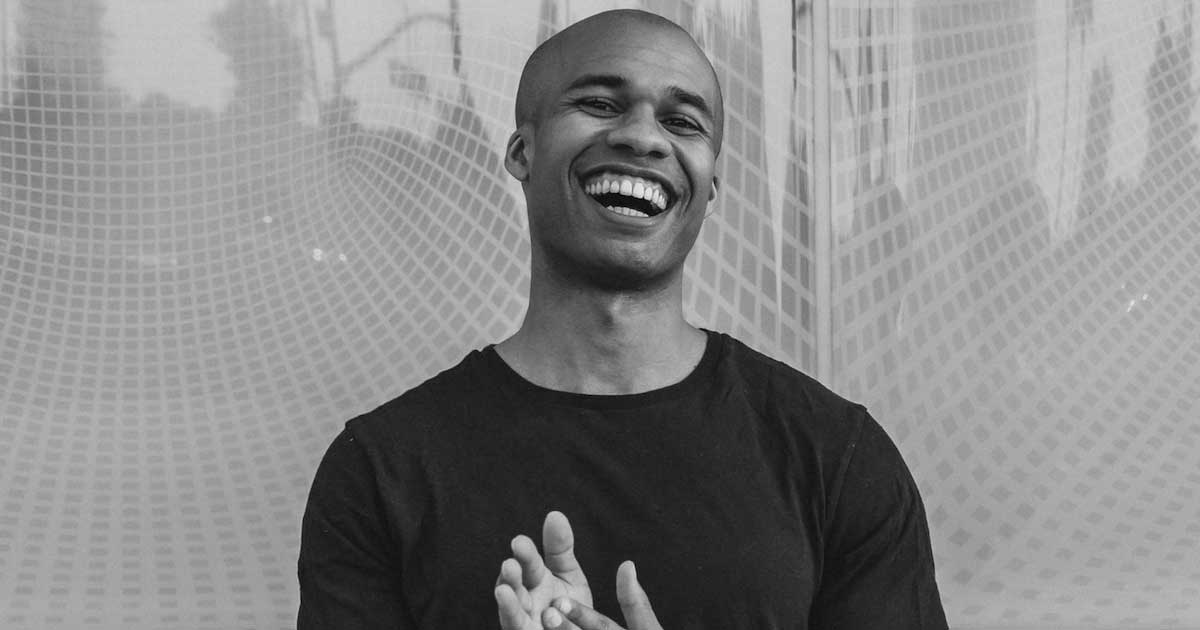Tucker Bryant had an idea while working at Google. It’s probably not what you think—no new way to use Gmail, no creative overlay of its maps system. No, this was about poetry and how professionals can adapt to confidently confront the future with a poet’s outlook.
“I had been under the impression there would be a total separation between that high-octane, rigorous corporate environment and the imaginative and expansive realm poetry sits in,” he says. “But upon discovering how similar our leadership’s challenges were at the highest level to the goals poets try to tackle every day they sit down in front of their journals, it clicked for me just how much farther we could go as business leaders by taking a few leaves from a poet’s book.”
Bryant says there are several tools poets have relied on for centuries to free themselves from their comfort zones and innovate through language. These tools can also offer business leaders an expanded perspective needed to meet a sometimes-unstable tomorrow. 
Complacency can ruin a business, Bryant says. Audiences expect more than ever, competition is fierce and it feels like the world is one disruption away from collapse.
But despite these challenges, he says, very few leaders understand their teams’ potential to nurture original thinkers who play an active role in authoring their business’ future.
The Poet’s Keys
Bryant is a poet himself, and a storyteller. He’s also a keynote speaker at IMEX America 2023 in Las Vegas, Oct. 17-19.
During his keynote, he’ll talk about The Poet’s Keys™ and how they empower leaders to unlock creativity, collaboration and competitive advantage where it matters most in your business. Attendees will receive tools to help build a culture of creative disruption and bold exploration in every area of their organizations. They’ll be set up to shape the meeting and event industry as leaders.
All The Poet’s Keys are positioned to solve different problems, Bryant says, so it’s difficult to elevate one above the others.
“With that said, I really think that curiosity is the precursor to just about all forms of meaningful disruption,” he says. “By nurturing a habit of being curious enough to ask good questions about the challenges and opportunities we face, there’s a good chance you’ll eventually end up internalizing the learnings and behaviors the other Keys stand to offer.”
An example of how curiosity can lead to meaningful disruption is found in the poetry of Terrance Hayes. He’s one of Bryant’s favorite poets because he’s committed to experimenting, challenging convention and searching for new ways to express his world vision in hopes it might open a door to a new understanding among his readers.
“That nature of searching, questioning and testing is what I think not only poetry but any craft we pursue through our work, relationships and lives is all about,” Bryant says.
Adapt, create and thrive
When it comes to the topic of creativity and its role in business, one misconception Bryant often sees is that people think creativity is woo-woo, unstructured and an unserious practice. It’s then just an afterthought as a quality to nurture in business.
“The truth is that just like poetry, creativity is a skill that we get the most out of when we tap into it by applying both soul and structure,” Bryant says. “The ‘soul’ perspective helps open our minds to the vast possibility of creative output in a deeply human way, but the structure piece can illuminate for us how to bring those possibilities to life in a pragmatic way.”
Humans, too, are resourceful when faced with changes, challenges and uncertainties, he says.
“I’m beginning to appreciate that once our basic needs are met, success might not be anything more than having a healthy and active commitment to searching—searching for impact and meaning in our work, our relationships, our communities and our own self-understanding.”
“I think most of us have at least a small part of ourselves that sort of recoils in fear when our budgets are cut, when we are forced to stop holding in-person events or when a future we were counting on starts to shift before our eyes,” Bryant says. “Yet time and time again, we show this unwavering capacity to adapt, create and thrive. Even though we stand before world changes that might make me nervous every once and a while, that reminder of what we’ve demonstrated an ability to achieve and overcome makes me feel so excited and comforted about the future and what we’ll do with it!”
That ability to adapt is something Bryant is familiar with, as he says his own goalpost of success has moved more than a handful of times.
“I’m beginning to appreciate that once our basic needs are met, success might not be anything more than having a healthy and active commitment to searching—searching for impact and meaning in our work, our relationships, our communities and our own self-understanding,” he says. “Our short-term goals are sure to change more times than we can count, but as long as we can protect the spark that keeps us curious about what more meaning there is to find and create in the lives we lead, those lives are bound to feel full in the long term.”


